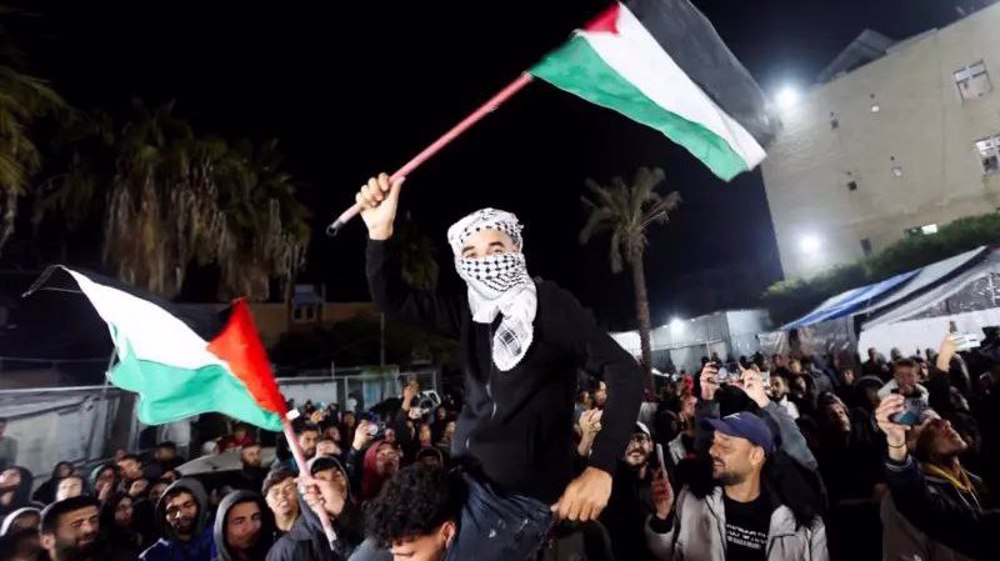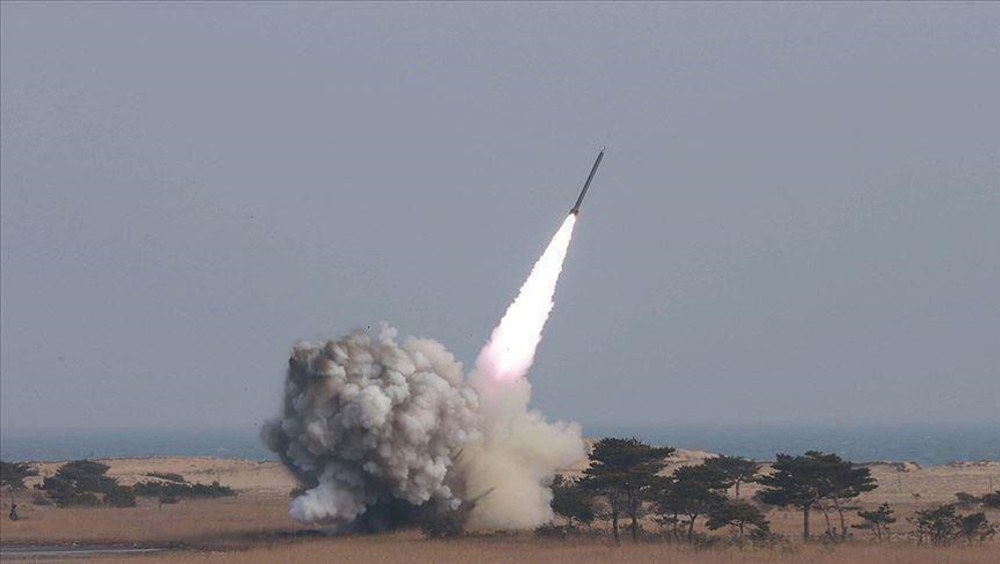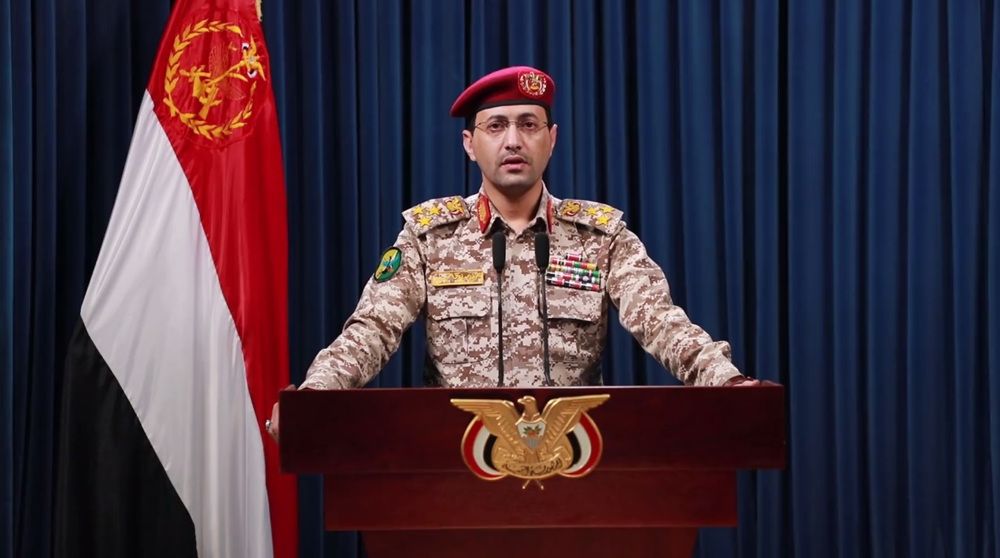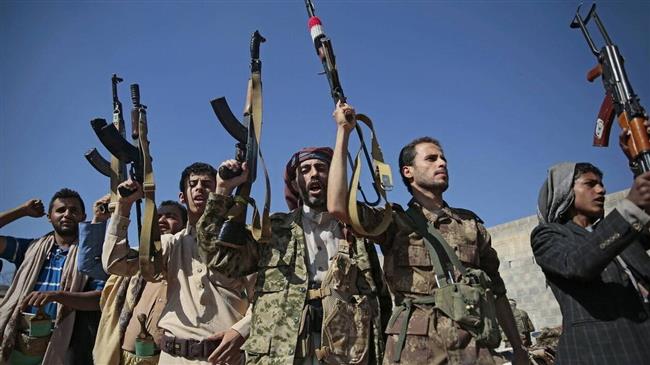UN official: US blacklisting of Houthis means 'death sentence to hundreds of thousands'
A top UN official has called on the US to reverse its controversial decision to designate Houthis as a “terrorist” organization, warning that such a move literally means giving a “death sentence to hundreds of thousands” in Yemen.
David Beasley, the executive director of the UN World Food Programme, made the call during a UN Security Council meeting on Thursday, four days after US Secretary of State Mike Pompeo announced that he intended to blacklist the Houthi movement as a foreign terrorist group on January 19, just one day before President-elect Joe Biden’s inauguration.
The much-condemned decision by the outgoing administration of US President Donald Trump was made in defiance of the aid groups, which fear the move would deteriorate a humanitarian crisis in the war-torn country. Only, the US Congress can block the dangerous decision.
“We are struggling now without the designation. With the designation, it's going to be catastrophic. It literally is going to be a death sentence to hundreds of thousands, if not millions of innocent people in Yemen,” said Beasley, the former South Carolina governor, at a meeting of the UN Security Council on Thursday.
"This designation - it needs to be reassessed; it needs to be re-evaluated. And quite frankly, it needs to be reversed," he added.
Saudi Arabia and a number of its regional allies launched a devastating war on Yemen in March 2015, with the goal of bringing the government of former president Abd Rabbuh Mansur Hadi, a staunch ally of Riyadh, back to power and crushing the popular Houthi Ansarullah movement.
The Houthi fighters have been helping the Yemeni army confront the invaders since the onset of the war which has killed more than 110,000 Yemenis so far. The Houthi Ansarullah movement is deeply rooted in the Yemeni nation and many Yemenis consider themselves either members of the movement or loyal to it.
UN urges US to reverse decision
Mark Lowcock, the UN undersecretary-general for humanitarian affairs, told the meeting that the White House must cancel its decision to blacklist the Yemeni movement as a “terrorist” organization.
He insisted that the US must reverse its decision to avoid the risk of a famine not seen for decades.
“What is the likely humanitarian impact? The answer is a large-scale famine on a scale that we have not seen for nearly 40 years,” said Lowcock, adding, “Would licenses and exemptions for aid agencies prevent that? The answer is no. What would prevent it? A reversal of the decision."
"Aid agencies cannot – they simply cannot - replace the commercial import system," Lowcock added.
At least 80 percent of the 28-million-strong population of Yemen is reliant on aid to survive in what the UN has called the world’s worst humanitarian crisis.
UN Yemen envoy warns of 'chilling effect'
Meanwhile, UN Yemen mediator Martin Griffiths warned that the controversial decision by the US against the Houthi movement could have “a chilling effect on my efforts to bring the parties together” and should be reversed on humanitarian grounds.
"We fear that there will be inevitably a chilling effect on my efforts to bring the parties together," Griffiths told the 15-member body, adding, "The decision will contribute to the prospect of famine in Yemen and should be revoked based on humanitarian grounds at the earliest opportunity."
The International Committee of the Red Cross (ICRC) also said in a statement that it feared Washington’s designation could only lead to a “chilling effect” on delivering the desperately-needed humanitarian aid to sick and starving civilians.
“In particular, the ICRC is concerned about the possible ‘chilling effect’ the designation may have on humanitarian action, leading to it being impeded or delayed,” said ICRC director of operations Dominik Stillhart.
He added that the ICRC, whose second-largest operation worldwide is in Yemen, had already urged countries imposing such measures to consider “humanitarian carve-outs” to mitigate any negative impact on populations and on impartial aid.
Stillhart further said that his independent organization is increasingly alarmed at the humanitarian situation in Yemen, where infectious diseases, hunger, and rising food prices constantly hitting civilians.
“Increased operational risks and possible de-risking from the banking and private sectors in response to the designation ultimately may constrain the humanitarian response in Yemen,” he further warned.
The brutal war has destroyed or closed half of Yemen’s hospitals and clinics, leaving Yemenis helpless particularly at a time when they are in desperate need of medical supplies to fight the COVID-19 pandemic.
Yemen’s Ansarullah says won’t abandon peace talks over US designation
Later on Thursday, Yemen's Ansarullah movement said it will not walk away from peace talks with the UN and Saudi Arabia despite the US designation of the movement as "a foreign terrorist organization."
In an interview with Reuters, Ansarullah spokesman Mohammed Abdulsalam said, "These (talks) have nothing to do with the (US) decision, which will not limit our movements nor our international relations," adding this applied to both UN efforts and ceasefire talks with Riyadh.
"We will not stop our efforts to reach peace in Yemen ... it is our responsibility to talk, to end the war and the blockade," he said.
Abdulsalam emphasized that the US “decision will have no political or military impact whatsoever, except that it will worsen the humanitarian situation in Yemen, which is already under blockade."
The Ansarullah spokesman stated that any agreement on a nationwide ceasefire should include "humanitarian solutions" allowing fuel imports, reopening of airports and ports, and "make room for political talks."
Hamas thanks Iran, Resistance Front following achievement of ceasefire in Gaza
'Capitulation': Israeli officials and media concede Gaza defeat as truce unfolds
'Gaza has won': Social media users react to ceasefire with mix of relief, joy
Iran seeks South Korea’s assistance for AI, fiber-optic projects
VIDEO | Iran's 'Eqtedar' (Power) maneuver
Israel hits HTS military target in Syria for 1st time since fall of Assad
VIDEO | Press TV's news headlines
Israel has slaughtered 13,000 students in Gaza, West Bank

















 This makes it easy to access the Press TV website
This makes it easy to access the Press TV website